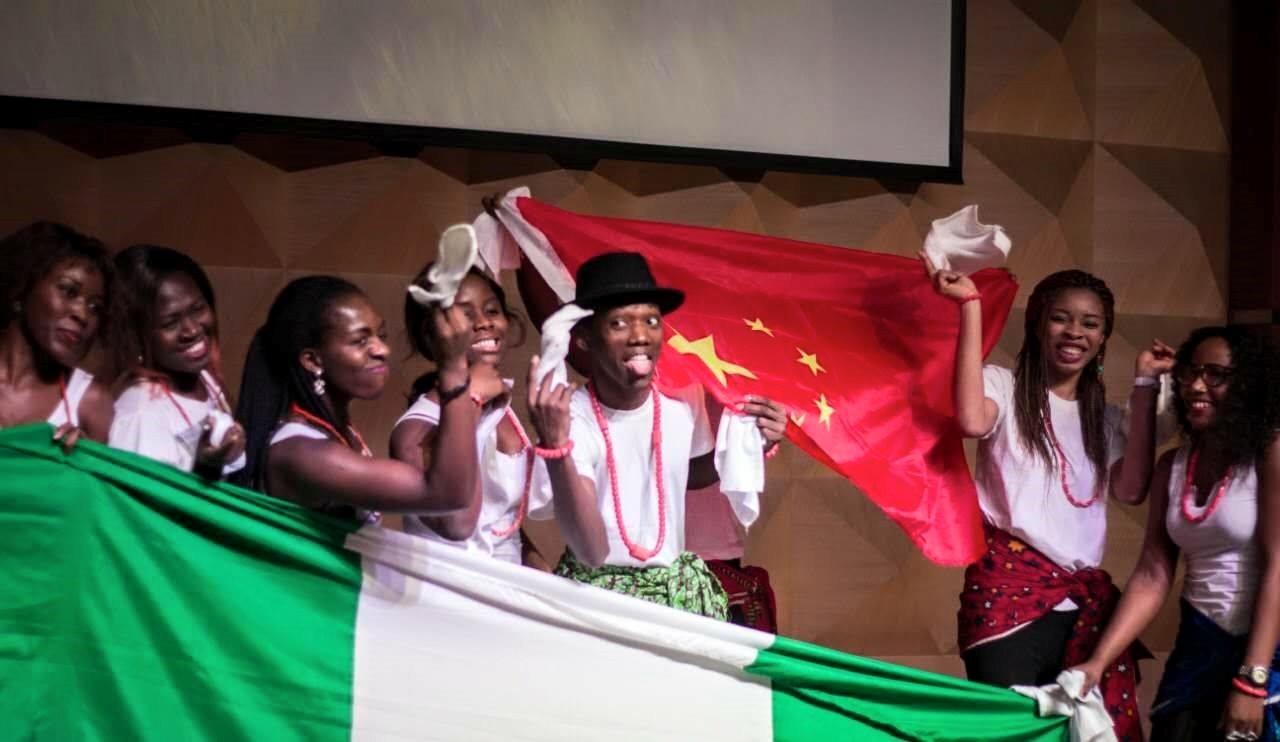The growing economic relationship between China and Nigeria has resulted in the increased demand for translators, a very lucrative and attractive job opportunity for many young graduates, but is it worth the challenges that accompany this role?
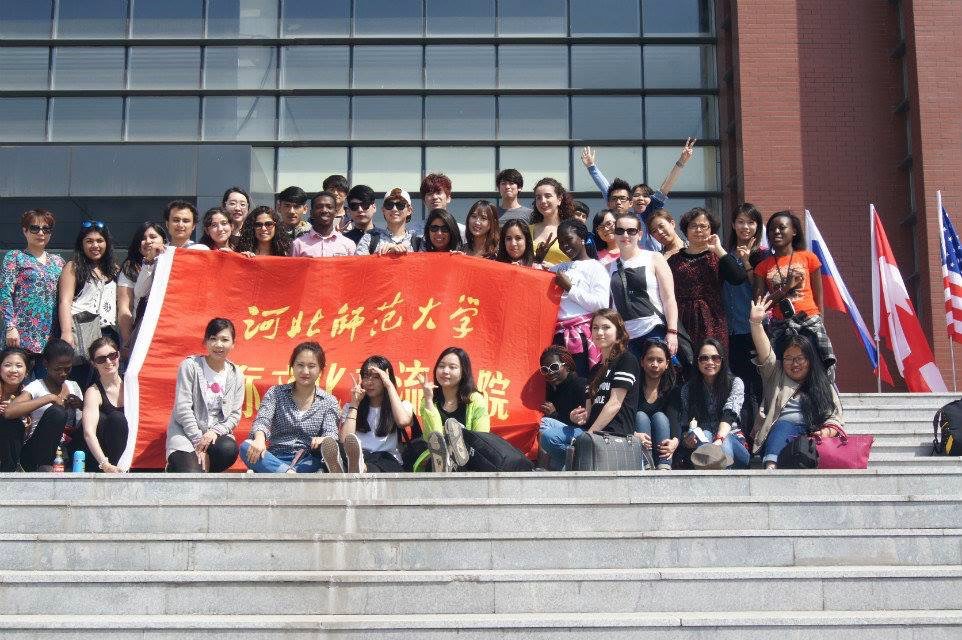
“Chinese people are always nice to people who can speak their language,” says Chiamaka Okoli, as she prepares to go to work. It is the early hours of the morning but Okoli who works as a translator for Dangote Refineries, a refinery under construction owned by the Dangote Group, wants to beat the traffic of the bustling Lagos city life so she can report at work by 7:00AM.
The 26-year-old Biomedical Science graduate is among the many Chinese translators who despite having studied different courses at the University end up working as translators and interpreters for the Chinese nationals in Nigeria. For most, the numerous benefits and the attractive salary package that come with working as a Chinese translator are major influencing factors for their decision to learn Mandarin but for Okoli, this was not the case.
“I have always loved watching Chinese movies so when I came across the advert to learn the language in school, I was very happy to learn. I wanted to be able to watch my favorite movies without needing subtitles,” she says laughing. “Who knew I will end up working as a translator”.
Chiamaka Okoli
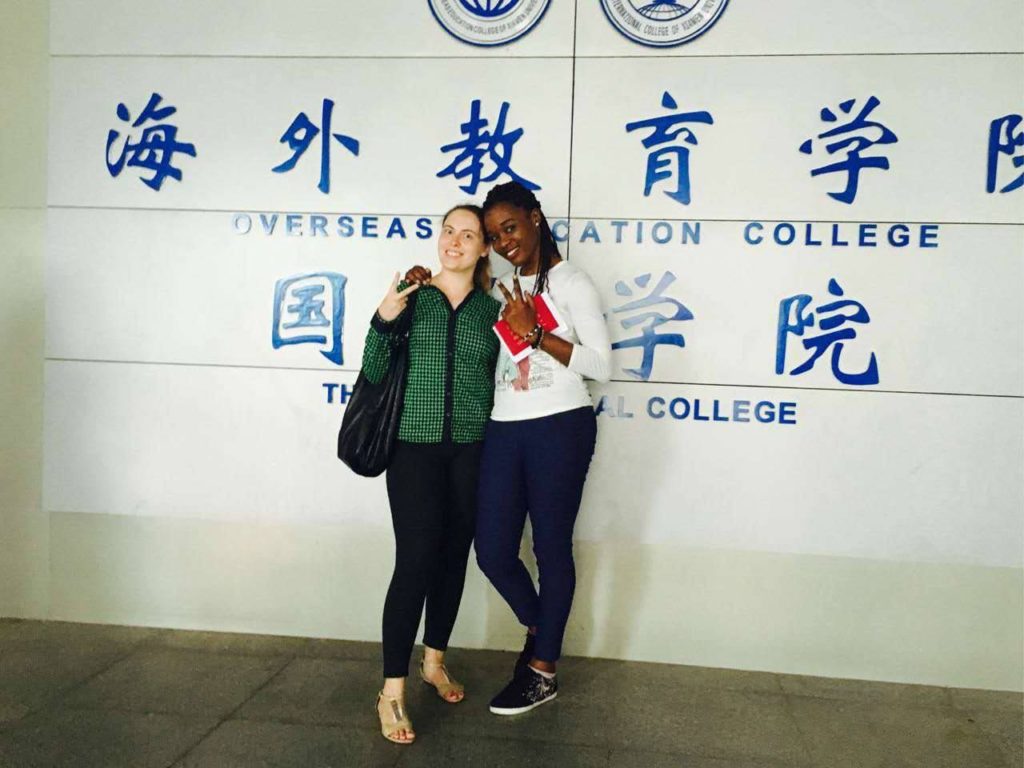
Credits: Chiamaka Okoli’s Facebook
The world of translators in Nigeria is a budding industry with the influx of more Chinese businessmen into the country Okoli points out. There is a growing demand for Chinese to English translators and Chinese –speaking professionals. Asides the numerous job opportunities available to translators, it is also a lucrative source of income. Translators can earn up to 400,000NGN ($1,100) per month, a huge step up from the 62,000NGN ($171) wage allowancean entry-level government worker would earn in Nigeria. In some cases, accommodation and feeding expenses are provided for these translators making the job a lot more attractive for school leavers.
China’s growing commercial presence in Nigeria and indeed Africa is not a new occurrence. By the end of 2017, data from China Africa Research Initiative (CARI)showed that the Chinese Foreign Direct Investments (FDI) annual stock in Nigeria had risen from $2.5 billion in 2016 to $2.8 billion in 2017, a 12% increase from the previous year. These increasing investments have resulted in the influx of more Chinese nationals. In 2017, the Chinese Ambassador to Nigeria, Zhou Pingjian, noted that there were about 40,000 Chinese nationals living in Nigeria as compared to the 20,000 Chinese nationals in Nigeria in 2012. Majority of the Chinese population is concentrated in Lagos city, where the Lekki Free Trade Zone, the first privately owned free trade zone in Nigeria, provides attractive investment opportunities for foreign companies and nationals.
The influx of more Chinese nationals into the country increases the demand for translators Okoli says. She points out that most of the Chinese businessmen who make their way into the country are Non-English speakers and thus, require the services of translators to conduct businesses efficiently. With the benefits working as a translator provides, Okoli notes that translators are not in short supply.

The journey however to becoming a well-paid translator is not as easy as it may seem. As China and Nigeria’s economic relationship deepens, many universities now offer courses teaching Mandarin to students as a way to prepare them for the competitive job market. The Confucius Institute is however the biggest center for learning Mandarin in Nigeria and it was here Chiamaka learned Mandarin. Located in only two cities in the country; the University of Lagos and Nnamdi Azikiwe University, Enugu; the Institute seeks to help Nigerians understand Chinese culture as its influences spreads across Africa and the world at large.
According to Professor Yongjing Wang, the Director of the Confucius Institute at the University of Lagos, the Institute is funded directly from Beijing through its Office of Chinese Language Council International and churns out hundreds of graduates every year. It teaches mandarin on a 4-5 months’ time period which ends with an exam to scale through to the next level. To become a translator, one has to scale through all six levels of the Hanyu Shuiping Kaoshi test (HSK), the only standardized Chinese language test for non-native speakers. It thus takes about two years to qualify as a translator.

The biggest attraction however for most language students at the Institute is the opportunity to go to China on a fully-funded scholarship to either study an undergraduate course in mandarin, take a one-year diploma course in mandarin or obtain a master’s degree in the language. This scholarship program not only gives students the opportunity to experience first-hand Chinese culture and traditions but also increases their competitiveness in the job market. Translators who have studied in China typically earn more than those who haven’t studied abroad. Okoli, a benefactor of the scholarship earns as high as 250,000NGN ($690) as compared to the 80,000NGN ($220) she earned before taking a language course in China.
“Getting the scholarship can be difficult and very competitive,” Okoli says. “Most Nigerians just want the opportunity to leave the country so there are usually a lot of applications. I was very fortunate to have gotten the scholarship to go to China to take a one-year diploma course in Mandarin.”
As exciting as this as this opportunity may seem, working with people of different cultural upbringing and ideologies can be daunting. Okoli notes that while working as a translator can be exciting, it could be very demanding at times.
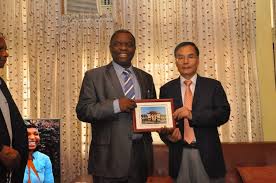
“The Chinese are very hard-working people and work Monday-Monday so they expect the same from all their employees.”
Chiamaka Okoli
With Nigeria being a very religious country, requesting that local employees work all day of the week can result in conflicts and disagreements. Many translators end up working all through the week and even on public holidays such as Christmas and New Year’s.
This is the experience of Joy Uzowulu, another translator at Dangote Refineries who had her holiday pay cut when she refused to work during the Christmas holidays. “When my boss asked us to work during the holidays, I refused. He threatened to cut my pay but I didn’t mind as long as I got to spend the two week holiday with family,” she said. “Some of my colleagues spent the holidays working.”
This experience is not uncommon in this line of business Okoli confirms. Many translators have had their pay cut or have received threats from their Chinese bosses to have their pay cut if they didn’t show up to work on public holidays and weekends.
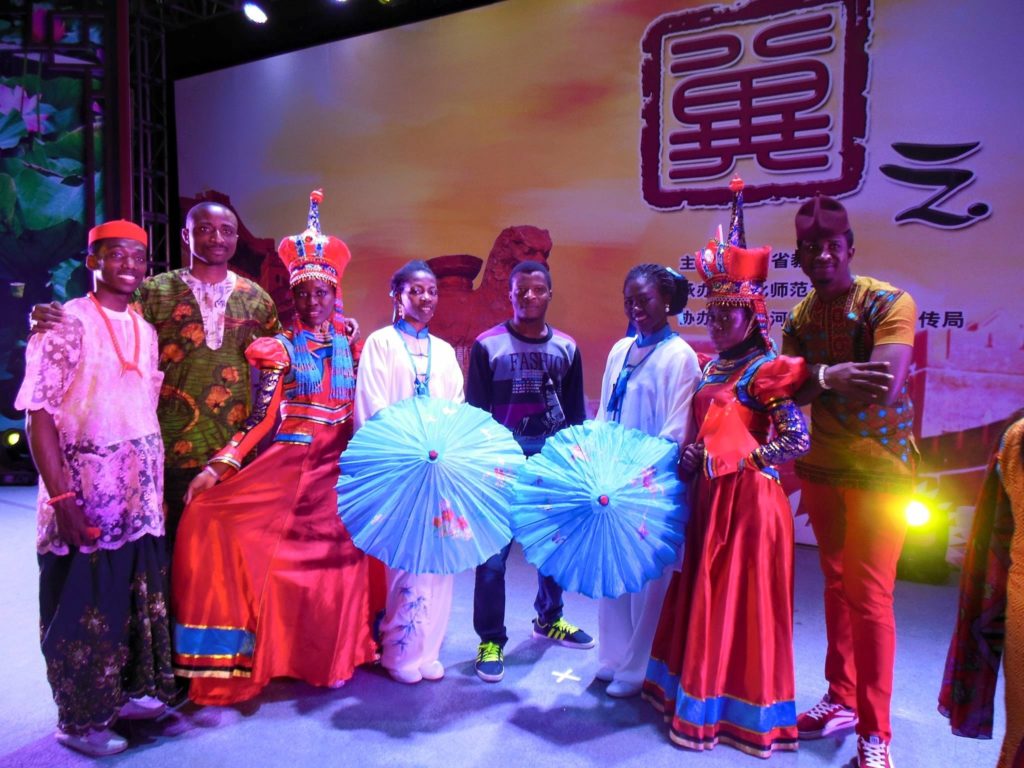
Asides the differences in working attitudes, cultural and traditional distinctions also pose a challenge to local employees. While it is a common practice in Nigeria to take a few days off work to mourn a bereaved family member or friend without any negative implications on one’s salary, the same does not apply for Chinese employers. Uzowulu recounts with frustration how she had her pay cut when she took a few days off work to mourn and bury her sister. She had informed her bosses prior to taking the leave about the situation and they had agreed without letting her know it would be deducted from her salary.
There have also been cases of racist remarks and comments made by Chinese bosses to their Nigerian employees. In June, 2017, it was reported in The Punchhow a local employee, Willam Ekanem, was left crippled after his Chinese boss got physical with him when he refused to show him a bag of rice he had purchased from a food vendor. Recently, in March 2018, CIG Motors Ltd., a Chinese-owned motor company, was taken to court over allegations that the Chairperson, a Chinese national, had sacked an employee after he protested the racial comments made against him by his Chinese bosses as reported in The Vanguard.
Okoli however points that these remarks and comments are made to the Non-Chinese speaking Nigerian employees. “The Chinese people are very friendly to me and they trust me because I speak the same language as they do. But for the other locals who don’t speak their language, they sometimes treat badly and say harsh things to them because they don’t trust them,” she says.
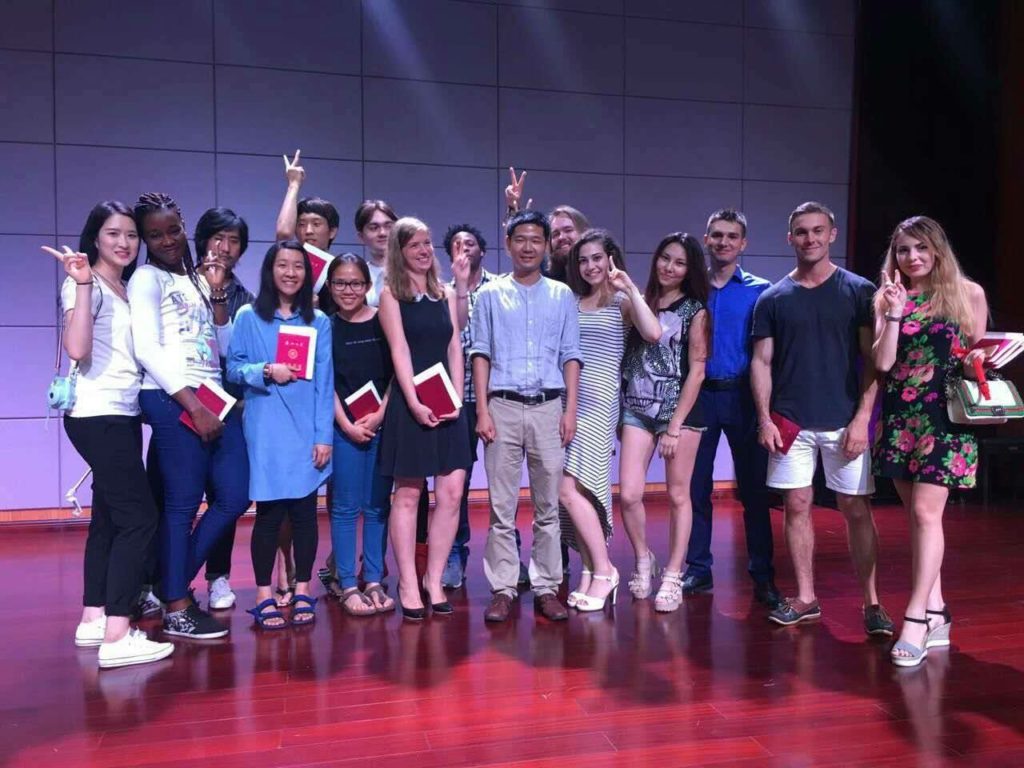
With cases of racism trailing Chinese employers, Uzowulu feels that a lot of these experiences can be traced to the mindset of the Chinese employers upon coming to Nigeria. “Most of the Chinese I work with are locals, they are from the villages in China and when they get the opportunity to come to work in Nigeria, they feel superior. When they see how desperate you are to get a job, they treat you anyhow they like,” says Uzowulu.
To prevent these experiences from happening to her, Uzowulu says she has had to become more plainspoken and voice her dissatisfactions with her employers when necessary. “The Chinese are very cunning people and are not very trustworthy. Before you come to work for them as a translator, they say sweet things and promise you a lot, but when you actually start to work for them, you realize quickly that they don’t follow through on their promises.
I have seen and experienced this, and I have had to adjust my thinking. Now, when I see something I don’t like being done, I speak out immediately.”
Although Uzowulu’s feisty personality at work has earned her a bit of respect among her Chinese bosses, the same cannot be said for some of her colleagues who she says have been on the receiving end of racial discrimination. She points out that because of the security details some of the Chinese employers have appointed, they feel untouchable and carry on bullying their Nigerian employees without fear of the repercussions. She therefore feels that being outspoken and spirited are essential traits to possess if one is to guard against such attacks.
“You should know your stand and let them know you have self-worth. That’s the only way these people will give you a little bit of respect,”
Ozowulu Joy
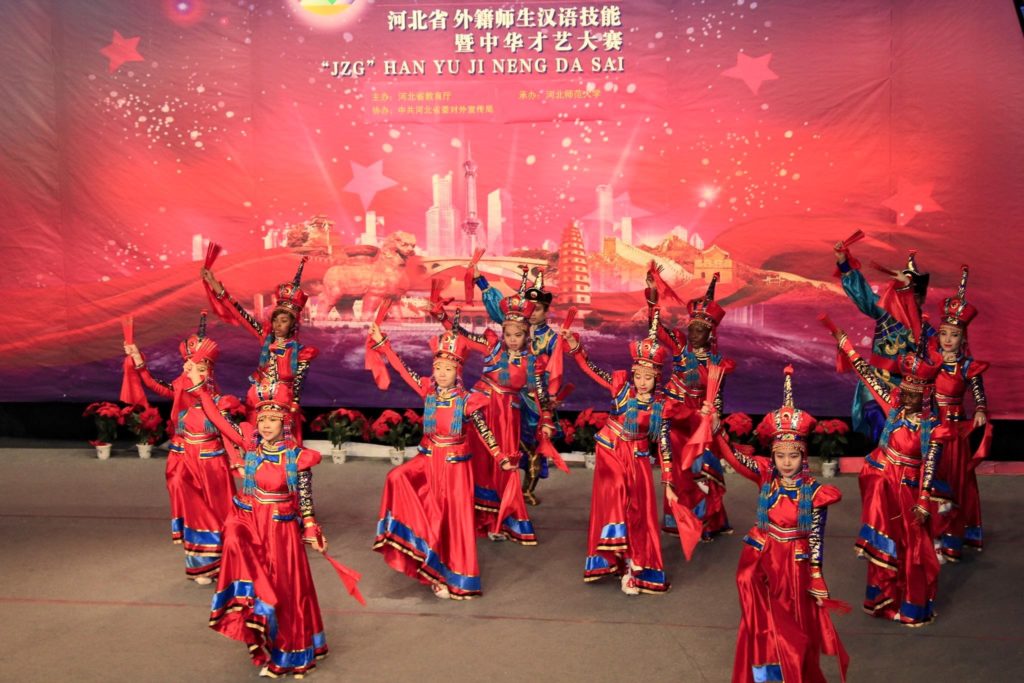
The International Federation for Human Rights (FIDH) committee at a United Nations conference noted the inadequacies of the Nigerian legal system in protecting its citizens against racial discrimination. It pointed out to the violations of the right to equal opportunities in the fields of employment, education and housing by foreign nationals on the local inhabitants and urged the Nigerian government to set up effectives programs and campaigns to help eliminate this form of discrimination.
Despite the challenges that accompany this role, Okoli is content with the opportunities working as a translator has provided her and feels that her experience has been worth it.
“Studying Chinese is difficult, so when you tell people you are working as a translator, they praise you. Even on site, the local workers and engineers respect you because you can relate and communicate with the bosses,”
chiamaka okoli
